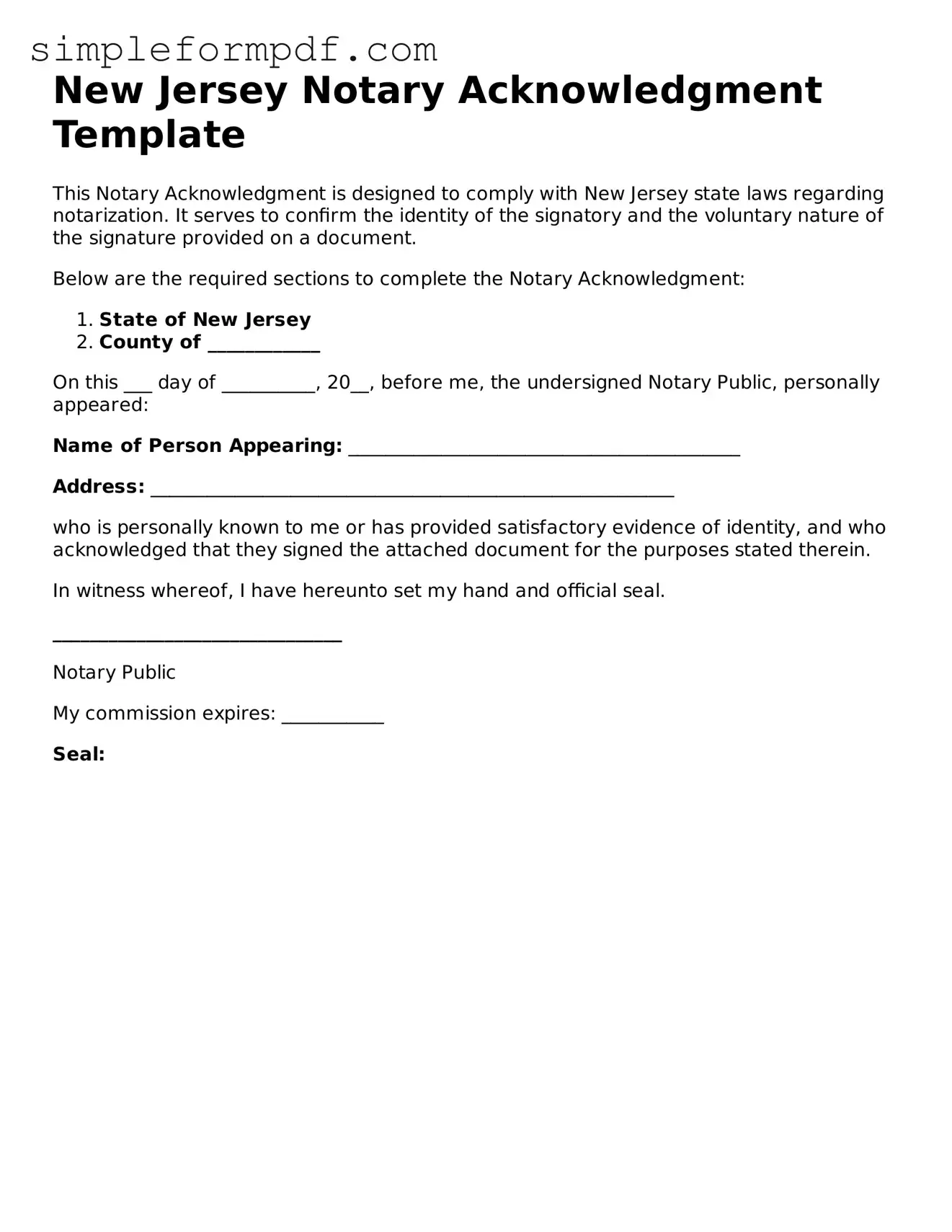Free Notary Acknowledgement Form for the State of New Jersey
The New Jersey Notary Acknowledgement form is a legal document that verifies the identity of individuals signing a document, ensuring their signatures are authentic. This form is essential in many legal transactions, providing a layer of protection against fraud. To get started with your own Notary Acknowledgement, fill out the form by clicking the button below.
Launch Editor

Free Notary Acknowledgement Form for the State of New Jersey
Launch Editor
Need instant form completion?
Finish Notary Acknowledgement online in just a few minutes.
Launch Editor
or
Download PDF
